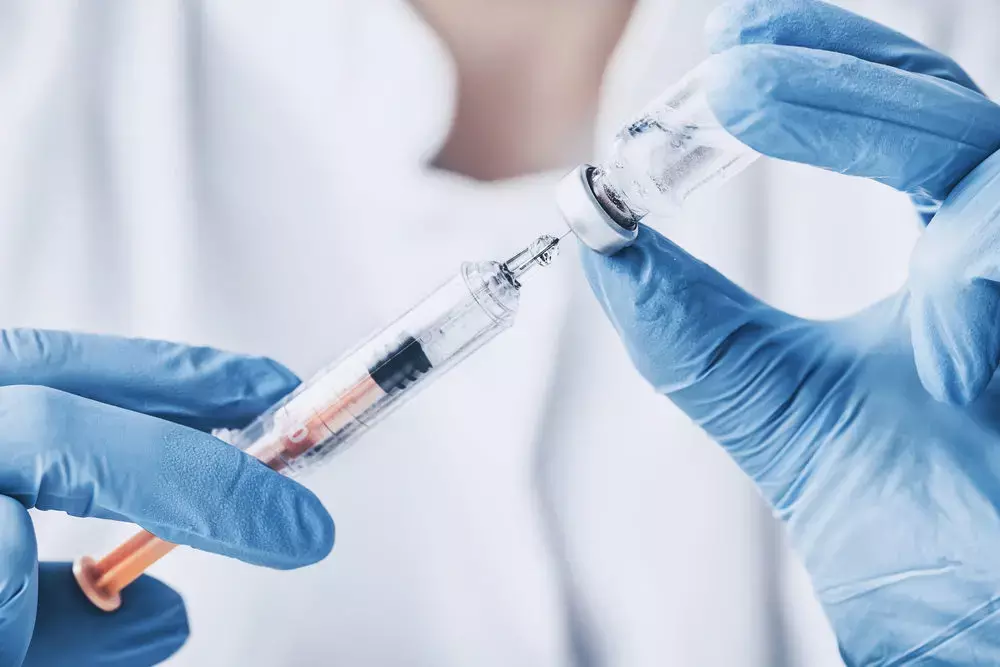- Home
- Medical news & Guidelines
- Anesthesiology
- Cardiology and CTVS
- Critical Care
- Dentistry
- Dermatology
- Diabetes and Endocrinology
- ENT
- Gastroenterology
- Medicine
- Nephrology
- Neurology
- Obstretics-Gynaecology
- Oncology
- Ophthalmology
- Orthopaedics
- Pediatrics-Neonatology
- Psychiatry
- Pulmonology
- Radiology
- Surgery
- Urology
- Laboratory Medicine
- Diet
- Nursing
- Paramedical
- Physiotherapy
- Health news
- Fact Check
- Bone Health Fact Check
- Brain Health Fact Check
- Cancer Related Fact Check
- Child Care Fact Check
- Dental and oral health fact check
- Diabetes and metabolic health fact check
- Diet and Nutrition Fact Check
- Eye and ENT Care Fact Check
- Fitness fact check
- Gut health fact check
- Heart health fact check
- Kidney health fact check
- Medical education fact check
- Men's health fact check
- Respiratory fact check
- Skin and hair care fact check
- Vaccine and Immunization fact check
- Women's health fact check
- AYUSH
- State News
- Andaman and Nicobar Islands
- Andhra Pradesh
- Arunachal Pradesh
- Assam
- Bihar
- Chandigarh
- Chattisgarh
- Dadra and Nagar Haveli
- Daman and Diu
- Delhi
- Goa
- Gujarat
- Haryana
- Himachal Pradesh
- Jammu & Kashmir
- Jharkhand
- Karnataka
- Kerala
- Ladakh
- Lakshadweep
- Madhya Pradesh
- Maharashtra
- Manipur
- Meghalaya
- Mizoram
- Nagaland
- Odisha
- Puducherry
- Punjab
- Rajasthan
- Sikkim
- Tamil Nadu
- Telangana
- Tripura
- Uttar Pradesh
- Uttrakhand
- West Bengal
- Medical Education
- Industry
Botox may help relieve symptoms in female patients with primary bladder neck obstruction

Pondicherry: A new study conducted by Atanu Kumar Pal and the team found that when female primary bladder neck obstruction (PBNO) patients prefer a less invasive surgery, botulinum toxin can be used as an interim therapy.
The findings of this study were published in the International Urogynecology Journal.
Medication and surgery are frequent treatments for treating primary bladder neck blockage in women. In individuals whose conservative care has failed, a less invasive procedure like a bladder neck botulinum toxin injection may be an alternative option. The subjective and objective results, patient satisfaction, and readiness to undergo repeat therapy with bladder neck botulinum toxin injection in females with PBNO are all discussed in this study.
Ten female PBNO patients treated with bladder neck botulinum toxin injections for this investigation were retrospectively analyzed. Symptom evaluation, the International Prostate Symptom Score (IPSS), and Quality of life (QoL) scores were used to quantify subjective factors. Utilizing uroflowmetry's Qmax maximum flow rate and post-void residual (PVR), objective parameters were evaluated.
The key findings of this study were as follows:
1. The pre-treatment mean IPSS, QoL score, Qmax, and PVR were 24.2 ± 5.0, 4.8 ± 0.63, 5.73 ± 3.18 ml/s, and 210 ± 66 ml, respectively.
2. Seven of the 10 patients improved subjectively (IPSS 12.9 ± 9.6, QoL2.9 ± 1.6).
3. Three patients showed objective improvement (mean Qmax 17.3 ± 2.7 ml/s, PVR 42.7 ± 7.5 ml).
4. Three patients agreed to another botulinum toxin injection.
5. Three patients who did not improve had bladder neck incisions, which resulted in symptom relief.
In conclusion, Botulinum toxin may help relieve symptoms in female patients with primary bladder neck obstruction (PBNO) and can be used as a bridge therapy for patients who have failed medical treatment. Acute urine retention, a protracted duration of symptoms, and indications of significant bladder outlet blockage on VUDS are all risk factors for therapy failure. More research is needed to determine the optimum dose and standardized the procedure.
Reference:
Pal, A. K., Kalra, S., Dorairajan, L. N., Sreenivasan, S. K., Manikandan, R., & Aggarwal, D. (2022). Outcomes of bladder neck botulinum toxin injection for female primary bladder neck obstruction—does subjective improvement correlate with an objective assessment? In International Urogynecology Journal. Springer Science and Business Media LLC. https://doi.org/10.1007/s00192-022-05319-x
Neuroscience Masters graduate
Jacinthlyn Sylvia, a Neuroscience Master's graduate from Chennai has worked extensively in deciphering the neurobiology of cognition and motor control in aging. She also has spread-out exposure to Neurosurgery from her Bachelor’s. She is currently involved in active Neuro-Oncology research. She is an upcoming neuroscientist with a fiery passion for writing. Her news cover at Medical Dialogues feature recent discoveries and updates from the healthcare and biomedical research fields. She can be reached at editorial@medicaldialogues.in
Dr Kamal Kant Kohli-MBBS, DTCD- a chest specialist with more than 30 years of practice and a flair for writing clinical articles, Dr Kamal Kant Kohli joined Medical Dialogues as a Chief Editor of Medical News. Besides writing articles, as an editor, he proofreads and verifies all the medical content published on Medical Dialogues including those coming from journals, studies,medical conferences,guidelines etc. Email: drkohli@medicaldialogues.in. Contact no. 011-43720751


